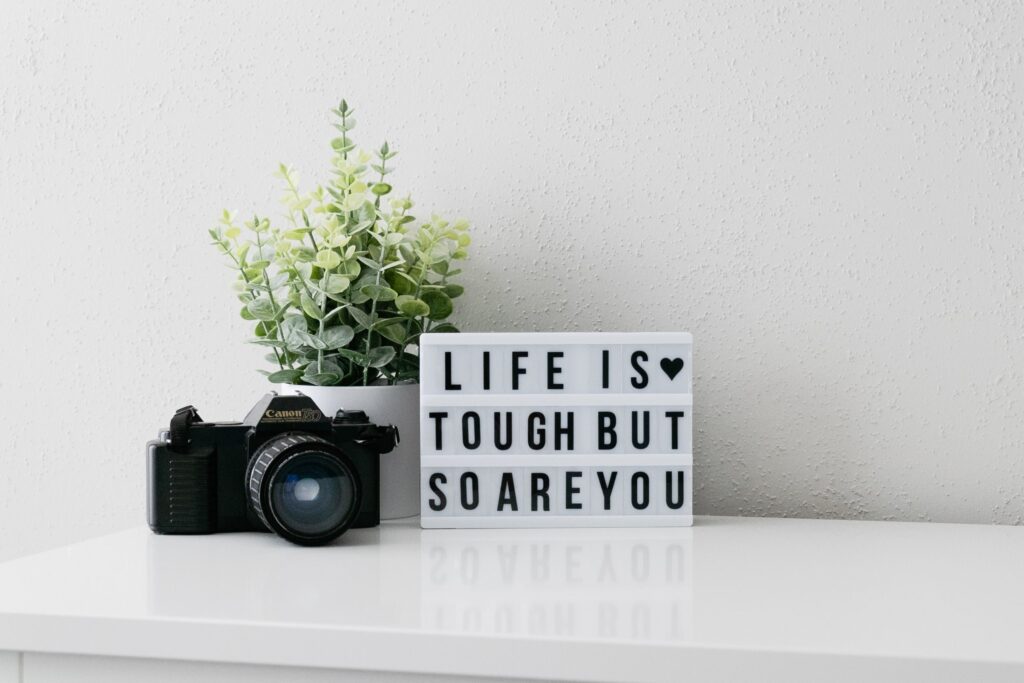Today we live in a fast-paced world with many technological advancements.
It’s true that our lives are now easier and more convenient than ever before but it’s also true that these advancements have come at a cost. Our lifestyle today has a significant impact on our mental health.
Social media keeps us connected with our loved ones from all corners of the globe and almost anything we desire can be delivered to our doorstep within hours or even minutes.
Virtual reality technology enables us to experience almost any place on earth.
All this is making our day-to-day lives easier and more enjoyable. But it is also contributing to growing mental health conditions.
While there is a multitude of reasons for mental health issues, ranging from biological to environmental factors, our modern lifestyle has become a major contributor to poor mental health.
Our reliance on technology has limited our physical activities, human interaction, and connection with nature, which is taking a toll on our mental well-being.

But despite the growing prevalence of mental health conditions, there is very little awareness and education around this topic.
The stigma surrounding mental health can be seen all around us. In the workplace, employees fear that admitting to mental health issues could negatively impact their career prospects.
In schools and colleges, students fear it will make them feel ashamed and embarrassed in front of their colleagues and teachers. In families and societies, people fear it will reflect poorly on them.
The thing about mental health issues is that you have to navigate and exist in a world full of stigma and discrimination while struggling and going through your own little version of hell in your head.
Do people get judged for having asthma or diabetes?
Then why judge people suffering from mental health-related problems? Society’s attitude towards mental health is one of the biggest barriers for people to get the help and support they need.
So, what is mental health stigma, and how can we combat it? In this blog, we’ll delve into the depths of mental health stigma, exploring its impact and discussing how we, as a community, can take steps towards a more understanding and compassionate world.
Table of Contents
What is Stigma and What are the Reasons Behind Mental Health Stigma?
Stigma is defined as an incorrect notion or negative assumptions and actions toward others because of their race, religion, sexuality, gender, or economic status. It can really hurt people and make them feel excluded and unwelcome.
No one should have to face stigma just for being who they are, and it’s important to create a more understanding and accepting world where everyone feels valued and respected for who they are.
The stigma around mental health is a real problem because it makes people feel that mental illness is embarrassing, like a personal failure or weakness. It makes them feel ashamed, distressed, hopeless, and reluctant to get help or accept help. Nobody wants to talk about mental illness like it’s taboo.
Everyone has their own opinion about it. Opinions that are based on myths and not facts cause misconceptions and the stigma around them.
Let’s look at some of the reasons contributing to negative opinions.
Media
The media and entertainment industry is one of the major drivers of the stigma around mental health. Mental health conditions were relatively rare in the past, and those that did exist were usually severe. The same is often portrayed in the movies.
Unfortunately, this is still the case today and people with mental health issues are often portrayed as being dangerous, unstable, or “crazy” and that they belong in mental asylums.
This kind of negative portrayal instills fear and creates stereotypes that lead to a widespread belief that individuals with mental health conditions should be feared and expelled from the communities.
Lack of Awareness and Education
The other major reason behind the stigma is the lack of awareness and education. And there are multiple factors behind this. There is a taboo around mental health, and people are not encouraged to discuss their problems openly which leads to a lack of understanding and knowledge.
Also, there are limited resources available, with a shortage of mental health professionals who can educate people about mental health, especially in rural areas.
Education and awareness about mental health are not given the priority they deserve in schools, workplaces, or other institutions.
Healthcare and Policies
First of all, mental health care is not covered by most medical insurance plans, and even if it is covered, the insurance providers put a cap or limit on the visits or type of services.
Mental health care is often expensive, and many people cannot afford the services they need, leading to a lack of treatment and support.
Moreover, funding by the government for mental health services is also minimal due to which the mental health facilities are underfunded, understaffed, and overcrowded which results in poor quality care, long wait times, and limited access to services.
All this discourages people from seeking proper treatment and gives them the impression that it is not important or worthy of attention.
Historical and Cultural Factors
It may sound strange, but in some cultures, mental health conditions are believed to be the result of supernatural forces, such as curses and evil spirits.
This creates stigma and discrimination as people are often afraid of being associated with such conditions.
Although most people do not believe in these ideas anymore, they still influence how people perceive mental health.
Though it may take some time to change these beliefs, it’s important to work toward understanding and accepting mental health issues in all cultures.
Common Misconceptions About Mental Health Conditions
Although there has been considerable improvement in recent years, there is still much work to be done to understand and promote mental health. There are still many common misconceptions and misunderstandings surrounding this important aspect of our well-being.
Let’s explore some of the most widespread myths regarding mental health and examine the reality behind them.
It Happens To People Who Are Weak
People who don’t struggle with any mental health condition somehow think that those who suffer from these conditions are weak. This might be because of the fact that mental conditions cannot be seen or easily diagnosed.
But this could not be further from the truth as similar to physical health, mental health problems can affect anyone regardless of their social, economic, or cultural background.
Mental health conditions are caused by a combination of genetic, environmental, and lifestyle factors and they don’t reflect the character of a person or his or her choices.
And taking care of yourself and having the courage to ask for help when you’re in need is a sign of strength, not weakness.
It’s All in the Head
Can we say that it’s all in your lungs for someone with asthma? No, so we need to stop saying that and making people believe it’s all in their heads. Yes, the problem is in the head because that’s where our brain is but it’s as much a real problem as any other health problem.
Only the people who struggle with these problems understand what it is like to live with them and how significant an impact they can have on your lifestyle and well-being.
Yet they often hear “it’s all in your head”, or “Is it even real?”. Mental illness is not a choice, and it’s as real as other physical health problems.
You’re Being Oversensitive
The other common misconception about mental health is that people who are struggling with conditions such as depression or anxiety are just being oversensitive. Most of the time depression is confused with sadness, anxiety is confused with overthinking.
While it’s true that everyone experiences emotions like sadness and anxiety to some degree, mental health conditions go beyond just fleeting feelings.
As humans, we’re wired to handle stress, sadness, and other low feelings. We allow these feelings and we let them pass, but if we get caught up in ruminating and thinking, that’s when we tend to go into depression.
So it’s important to understand that mental health conditions are not a sign of weakness or oversensitivity.
Why Is Breaking the Stigma Around Mental Health Important?
God forbid that anything like this ever happens to anyone, but imagine that you have a broken leg that’s so excruciatingly painful that it feels like it’s killing you.
But instead of going to a doctor for medical assistance, you try to tough it out by taping it up and continuing to walk on it, gradually just breaking it more.
And When people ask what’s wrong with your leg, you brush it off as no big deal and say it’s just a bit stiff, and there’s nothing to worry about.
As you continue to walk on your broken leg continuously lying to people that everything is fine, the pain will increase, and your injury will become more severe.
Eventually, you will have to face the reality of the injury and seek medical treatment to allow it to heal.
The same scenario applies to people who are suffering from mental health issues.
They may walk around, pretending that everything is okay because they are hesitant to accept it and seek medical assistance for their mental health problems because of the stigma that it would be shameful or embarrassing to admit.
But it will continue getting worse till the time proper care and attention are given.
So, breaking the stigma around mental health is crucial because it encourages people to seek help when they need it. It creates an environment where people can talk openly about their experiences and emotions, without fear of being judged or shamed.
This will not only help the people to receive the care they need but also improve overall mental health in society. It is important to understand that mental health is just as important as physical health, and seeking help for mental health is a sign of strength, not weakness.
How to Break the Stigma Around Mental Health?
Mental illness doesn’t discriminate and can happen to anyone at any time. So it’s very important to break the stigma and normalize mental health problems, but it will take a collective effort from individuals, communities, and society as a whole.
A variety of strategies can be employed to address and overcome the stigma surrounding mental health.
Be Mindful of What You Say
Think about it, we have a habit of casually saying things like “I’m depressed” whenever we’re a little sad than usual, like when our favorite character in the TV show died, or when a party or trip we’ve planned for days gets canceled. That is not depression, it is much darker than that.
This dismissive approach to mental health not only trivializes the true pain and darkness of mental health problems but also strengthens negative stereotypes.
We must recognize that depression is not something to be taken lightly. It’s when you get extremely negative thoughts like suicide or hurting yourself.
So we need to be mindful and stop saying things like “This was crazy” or “You’re nuts” as they’re not adjectives that we can freely use whenever we wish. I’m sure we can find better words that describe what we’re feeling.
The other thing is to avoid defining people by their mental illness, or any other problem for that matter. So rather than saying someone is bipolar, you can say he or she has a bipolar disorder.
This minor tune-up might not seem to make a whole lot of difference but first-person language is respectful and an illness or a condition does not define anyone.
Education and Awareness
Educating people and spreading awareness about mental health conditions is the most effective way to break the mental health stigma.
Educating yourself first would be a good starting point. Learn as much as you can about mental health and try to clear your preconceived notions and myths.
Next, we need to start educating people in schools and workplaces. Let’s break down the barriers preventing people from seeking the help they need, and create an environment where everyone feels comfortable discussing their mental well-being.
We must acknowledge that mental health is just as real and deserving of attention as physical health, and treat it as such.
Having the right knowledge and awareness around mental health will also help overcome the fear of discrimination and the constant thought of being judged by society.
This fear makes people feel they don’t have any choice but to keep quiet and keep the feelings to themselves, which is one of the worst things you can do when suffering from any form of mental health condition.
The fear of discrimination leads to avoidance of help and resources and being honest with friends and family which exacerbates the problems
Compassion
If someone that you love or care about is suffering from a mental illness, we want to help them and care for them. And our general tendency is to solve the problem and we start telling them what they should do and what they shouldn’t do.
But it might not be the best approach because it can complicate things and make them feel ashamed that they are unable to help themselves.
So just be there for them and try to listen and empathize with them. Invite them for any outing however small it may be, just for a coffee or lunch.
Talk Openly and Normalize
We often post pictures of the gym or any diet plan we’re following on social media but never do we post any photos or talk about going to therapy.
Just like the gym helps strengthen our body muscles, therapy helps strengthen our mind muscles and it should not have any more stigma than going to the gym.
We’ll make real progress in this space only when we start talking about things related to mental health more openly and normalize them as we’ve normalized everything else related to our physical health.
The more we talk about therapy and other mental health-related resources, the more likely other people will consider doing them.
Wrapping up!
Mental health is not a destination, but a journey that requires continuous attention and care. We can’t solve any problem immediately, but we can make it a continuous approach and take small steps.
So let’s start by acknowledging that mental health is equally important as physical health and deserves the same level of care and attention.
We need a world where mental health is equally important to our well-being as physical health. We must work towards breaking down the stigma surrounding mental health, starting with our own attitudes and beliefs.
Let’s create an environment of support and empathy where people feel comfortable discussing their mental health issues without fear of discrimination or judgment. Namaste!







Leave a Reply